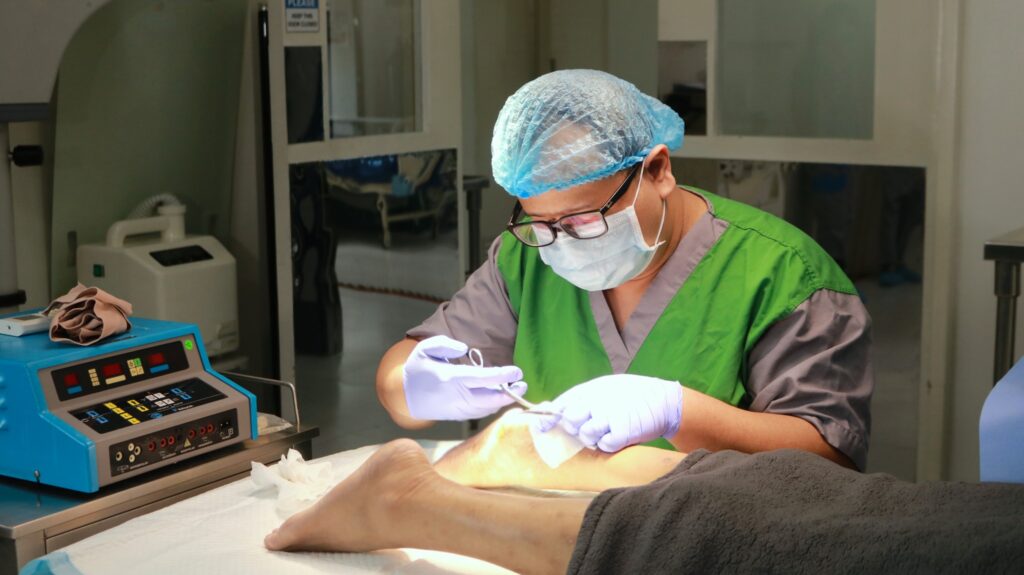The Growing Popularity of Medical Travel for Joint Replacement
In recent years, the number of patients traveling abroad for medical care has grown dramatically, and orthopedic procedures are no exception. Many individuals who suffer from severe knee pain are now turning to total knee replacement abroad as a solution. For some, the high cost of surgery in the United States or long waitlists in their home country have pushed them to seek alternatives overseas. Others are drawn by the promise of advanced technology and experienced surgeons working in world-class facilities at a fraction of the price. Medical tourism has evolved into a global industry, with orthopedic surgery ranking among the top reasons for travel. For aging populations, particularly those dealing with arthritis or long-term injuries, knee replacement surgery can restore mobility and quality of life. By combining treatment with the option to recover in peaceful destinations, medical travel is becoming increasingly appealing.
Understanding Total Knee Replacement Abroad
A total knee replacement involves removing damaged cartilage and bone from the knee joint and replacing it with artificial implants made from metal and plastic. This procedure is designed to reduce chronic pain, improve flexibility, and restore the ability to walk or perform daily activities. Patients who choose total knee replacement abroad typically find the process similar to what they would expect at home, with pre-surgical evaluations, anesthesia, and physical therapy forming an essential part of the treatment. The main differences are often seen in cost and accessibility. While some countries can provide surgery quickly and affordably, the decision should always weigh quality of care against affordability. Choosing an overseas hospital with highly trained orthopedic specialists can offer outcomes that rival or even surpass those in the United States. For patients who have waited months or years for surgery, the chance to have it completed sooner is often life-changing.
Destinations Leading the Way in Orthopedic Care
When it comes to total knee replacement abroad, several countries have become global leaders. India, Thailand, Turkey, Mexico, and Poland are among the most sought-after destinations due to their advanced hospitals and internationally trained surgeons. These locations often combine modern medical facilities with significantly reduced costs compared to the United States. For example, India and Thailand have gained reputations for offering cutting-edge techniques and compassionate care, while Turkey and Poland have invested heavily in medical infrastructure to attract international patients. Mexico is a popular choice for North Americans because of its proximity and ease of travel. Each of these countries offers unique advantages, but all share the benefit of affordability and quality. Patients are encouraged to research specific hospitals, review accreditations, and even connect with previous patients to gauge experiences before making a decision. The growing competition among these destinations has raised standards and given patients more reliable options.
Cost Factors and Hidden Expenses You Should Consider
One of the main reasons people seek total knee replacement abroad is cost savings. In the United States, knee replacement surgery can exceed $50,000, while in other countries the same procedure may cost between $7,000 and $15,000. This dramatic difference is often the deciding factor for patients without sufficient insurance coverage. However, it is important to recognize that the overall cost extends beyond the surgery itself. Flights, accommodations, meals, and potential companion travel should be considered when budgeting. Additionally, rehabilitation services or extended stays for recovery may add expenses that are not initially obvious. Travel insurance that includes medical coverage is another key cost to plan for. Patients should also be aware of potential follow-up visits or additional treatments that may be necessary once they return home. By planning ahead and understanding all possible financial factors, patients can make more accurate comparisons and avoid surprises.
Safety, Accreditation, and Quality of Care
Choosing total knee replacement abroad should always involve careful attention to safety and quality. Many leading international hospitals are accredited by organizations such as the Joint Commission International (JCI), which ensures adherence to high medical standards. Patients should verify hospital certifications and review the background and training of surgeons before booking. It is also important to ensure that English-speaking staff or translators are available to avoid miscommunication. Another consideration is the hospital’s infection control record and its approach to post-operative care. While many overseas facilities provide outstanding service, not every clinic maintains the same level of quality. Researching reviews, asking for references, and confirming the hospital’s experience in orthopedic surgery can help ensure peace of mind. Ultimately, prioritizing safety over price is essential when making a healthcare decision of this magnitude.
Preparing for Surgery in Another Country
The process of preparing for total knee replacement abroad involves multiple steps. First, patients should gather all relevant medical records, including X-rays, MRI scans, and blood test results, to share with the overseas medical team. Virtual consultations can help patients understand the procedure, timeline, and expected outcomes before traveling. Practical considerations such as securing a valid passport, checking visa requirements, and arranging flights should also be addressed early. Language differences may present challenges, so it can be helpful to select hospitals that provide interpreters. Additionally, patients should arrange for a family member or companion to accompany them during travel and early recovery. Packing essentials such as medications, comfortable clothing, and mobility aids is another part of preparation. By planning thoroughly, patients can reduce stress and focus on achieving the best possible results from their surgery.
Post-Surgery Rehabilitation and Follow-Up Care
Recovery after total knee replacement abroad requires careful attention to rehabilitation. Typically, patients spend several days in the hospital before beginning physical therapy to strengthen the knee and regain movement. Some hospitals abroad provide integrated rehabilitation centers where patients can continue therapy for weeks after surgery. While this can enhance recovery, it may also extend the length of stay and add to costs. Once patients return home, coordinating follow-up care with local doctors or physical therapists is essential. Remote consultations with the overseas surgeon may also be possible through telemedicine platforms. Recovery timelines vary, but most patients can expect significant improvement within three to six months. Preparing for ongoing rehabilitation after returning home ensures continuity of care and long-term success. Patients should view rehabilitation as a vital part of the overall surgical journey rather than an afterthought.
Risks and Challenges You Should Weigh
Although total knee replacement abroad offers many benefits, it also comes with potential risks. Surgical complications such as infection, blood clots, or implant issues can occur, just as they do in any country. The added challenge of being far from home during recovery can make complications more difficult to manage. Communication barriers may create misunderstandings, even with skilled translators. Cultural differences in healthcare practices may also feel unfamiliar to patients accustomed to systems in their home country. Furthermore, navigating follow-up care once back home can be complicated, especially if local doctors are unfamiliar with the specific implants used overseas. Patients must carefully weigh these risks against the financial and timing advantages. For many, the benefits outweigh the challenges, but it is vital to have realistic expectations and prepare for all scenarios.
Tips for Choosing the Right Medical Tourism Agency or Provider
A trusted medical tourism agency can simplify the process of arranging total knee replacement abroad. These agencies often handle logistics such as hospital booking, travel arrangements, and even post-surgery accommodations. When selecting an agency, patients should look for transparency in pricing, a proven track record, and positive patient feedback. It is also important to confirm whether the agency works with accredited hospitals and experienced orthopedic surgeons. Asking direct questions about success rates, complication policies, and available rehabilitation services can help patients make informed decisions. Some patients prefer to coordinate directly with hospitals, but agencies can provide an extra layer of support, especially for first-time medical travelers. Ultimately, the right provider should inspire confidence and make the patient’s health and safety the top priority.
Frequently Asked Questions (FAQ)
How long do I need to stay abroad after total knee replacement?
Most patients remain overseas for two to four weeks to allow for initial recovery and physical therapy before traveling home.
Is traveling after surgery safe?
Yes, but patients should follow their doctor’s advice and avoid long flights until cleared. Preventing blood clots with movement and compression stockings is critical.
Can my insurance cover surgery overseas?
Some international insurance policies or employer programs may cover costs, but traditional U.S. insurance often does not. Patients should confirm coverage before booking.
What is the success rate of total knee replacement abroad?
Success rates are generally high and comparable to those in the United States, provided that patients choose accredited hospitals with experienced surgeons.
How do I handle complications once I’m back in my home country?
Patients should establish a follow-up care plan with a local physician before traveling. Access to telemedicine with the overseas surgeon can also provide valuable support.






